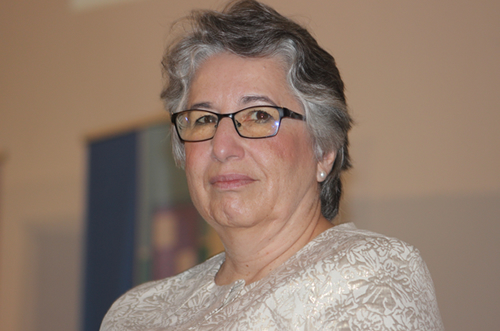
Dr Christine Evans-Klock
The United Nations (UN) on Monday articulated its willingness to support the Ministry of Interior and the Small Arms Commission in Ghana to tackle the increased circulation of small arms and light weapons.
Madam Christine Evans-Klock, the United Nations Resident Coordinator, speaking in Accra to mark the end of the observation of the “Global Week of Action against Gun Violence”, said the proliferation of illicit small arms and lights weapon was a global phenomenon.
The campaign, launched in 2003 by International Action Network on Small Arms (IANSA), the official coordinator of civil society for the UN small arms process, addresses the issue of armed violence.
This year’s observation spanned from June 5-June 12, and was on the theme “The Road to Development and Peace Begins with Silencing the Guns”.
Madam Evans-Klock noted that a survey in 2015 by the Small Arms Commission of Ghana estimated that there had been an increase in the circulation of unregistered arms in the country of 850 per cent from 2004.
Quoting a record from the Criminal Investigation Department of the Ghana Police Service, she said “these illicit arms are the main weapons used in conflicts over chieftaincy and land rights and that “there is a new concern about their use in the politically-related vigilantism that we have seen in Ghana since the December election.”
Madam Evans-Klock said if the country was determined to maintain the push towards creating a resilient and robust economy to propel national development, there was the need to deal with the menace of small arms as well as light weapons to curb potential violent conflicts in communities.
She said the connection between peace and development was spelt out clearly in the Goal 16 of the Sustainable Development Goals, which called on all countries to strengthen effective, accountable and inclusive institutions as a foundation for development.
Madam Evans-Klock identified youth unemployment as one of the key factors of insecurity across the West Africa region with failed expectations of good jobs and opportunities for starting businesses, which make them vulnerable to political exploiters.
On his part, Mr Henry Quartey, the Deputy Minister of Interior said Ghana was committed to the implementation of the Arms Trade Treaty and the Sustainable Development Goals in addition to other arms control instruments such as the UN programme of Action, International Tracing Instrument and the Firearms Protocol.
Mr Quartey said: “These instruments will help deal with gun violence issues. Proliferation of small arms and light weapons put all of us at risk and the time act is now.”
The Deputy Minister, who demonstrated distastefulness to mob action, said the ministry would ensure that acts of mob justice was thoroughly and impartially investigated and the perpetrators would be arrested and put before the court.
He said the Ministry would also improve police coverage and effectiveness in responding to crime in areas where mob justice was more prevalent especially in the rural areas.
Mr Quartey said: “The Government is very much committed to equipping the Police Service with the tools needed to effectively deal with this menace”.
Mr Baffour Dokyi Amoa, the Chairman of the International Advisory Council of IANSA said there were approximately one billion small arms in circulation worldwide today, and thousands of manufacturers around the world produced approximately eight billion more annually.
Mr Jones Borteye Applerh, the Executive Secretary of the National Commission on Small Arms and Light Weapons said the destabilising impact of violence and insecurity on development had severely degraded people’s access to basic services and human rights.
Mr Applerh said the impact of gun violence on the health and safety of Ghanaians especially women was a great concern to the Commission.
He said: “while we acknowledge that gun violence in Ghana cannot be fully prevented through gun safety measures alone, we believe that increasing the number of guns in the hands of civilians presents an increased risk to our communities.”
Source: GNA























